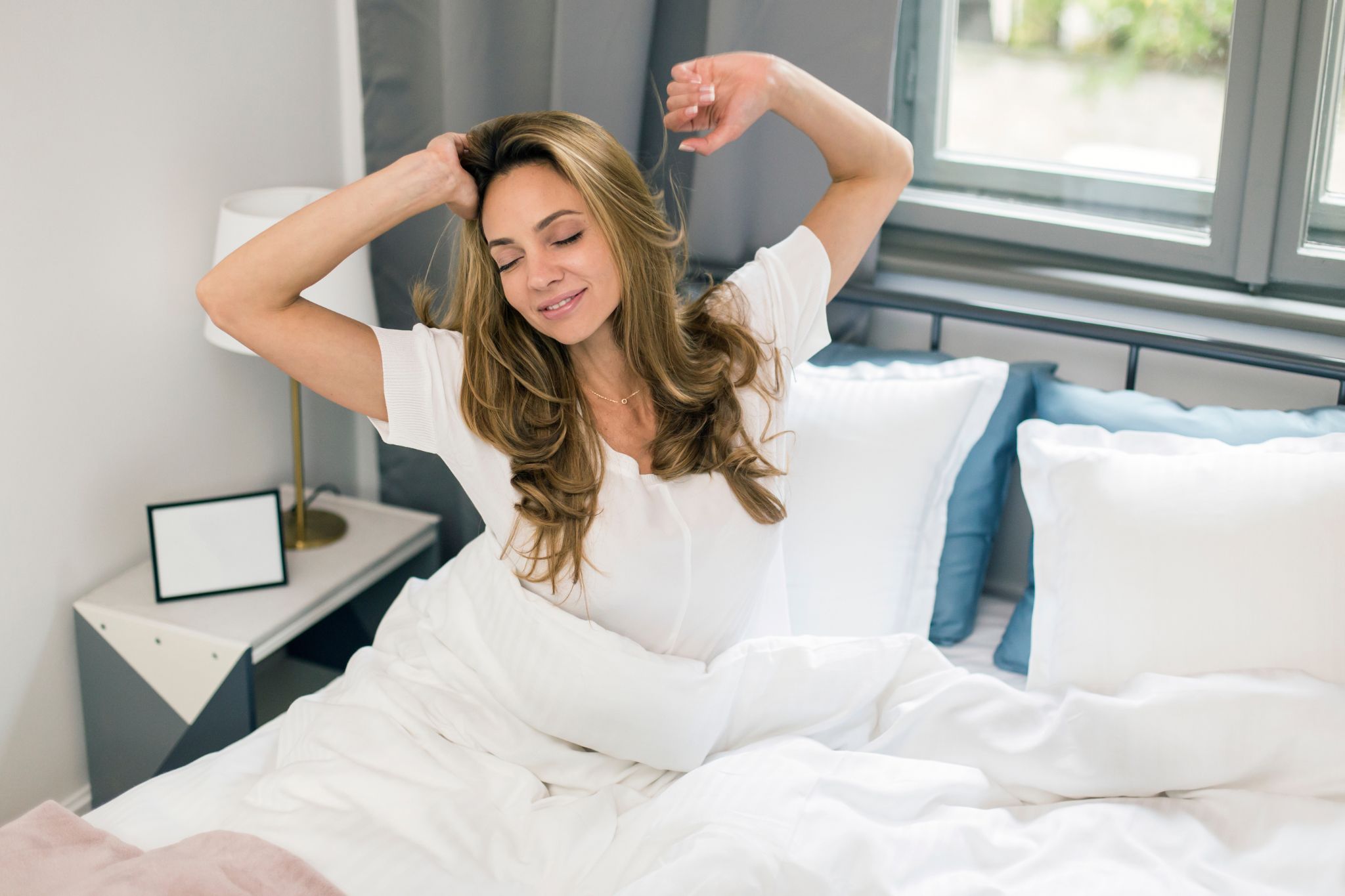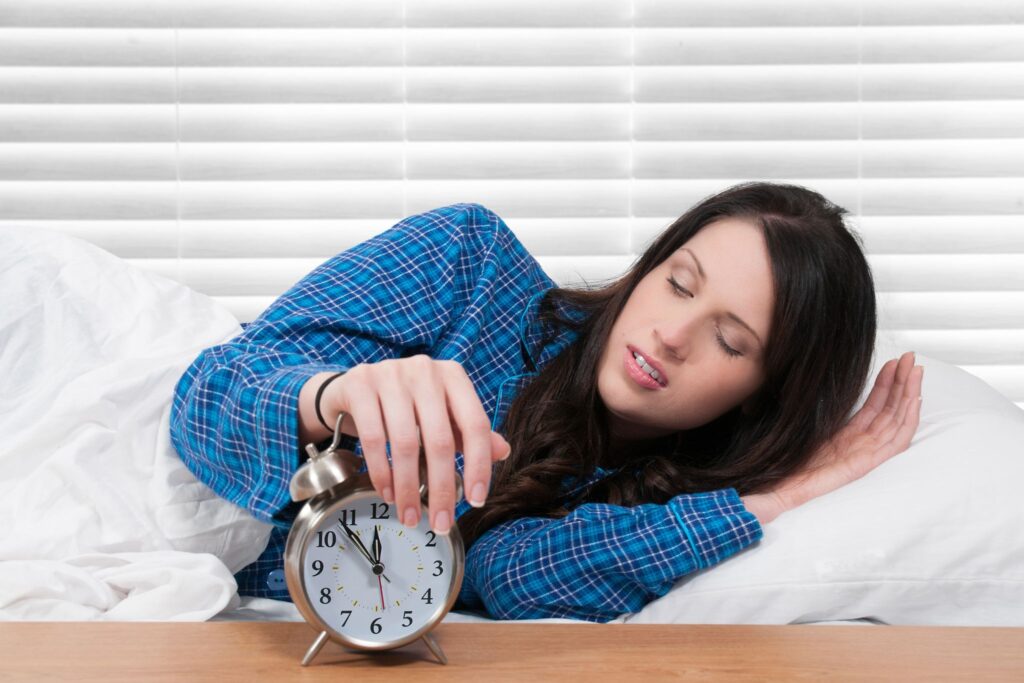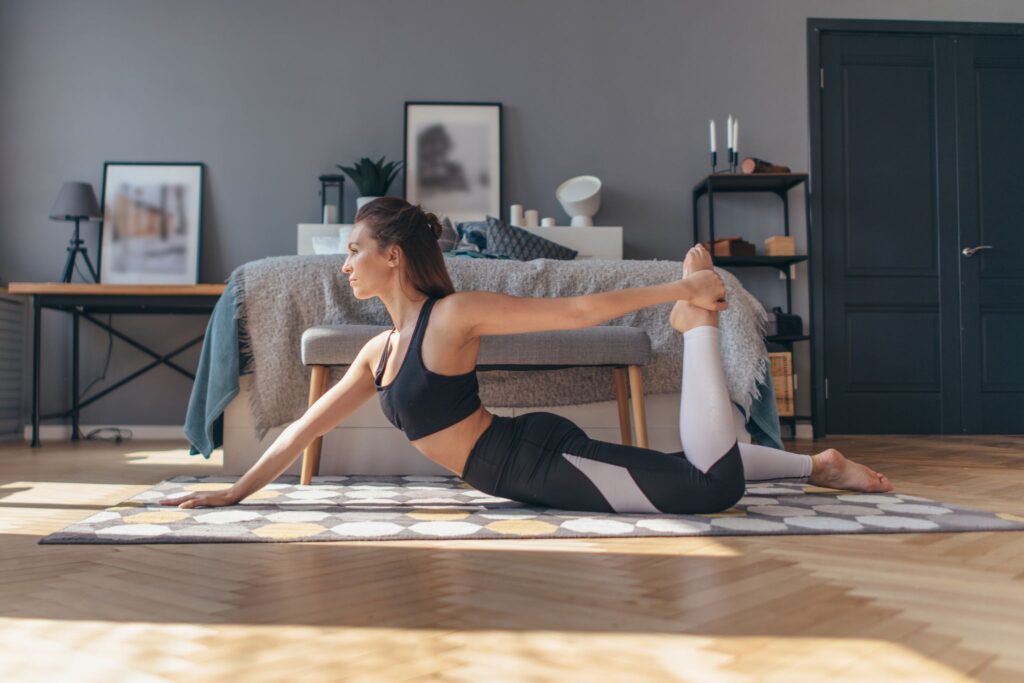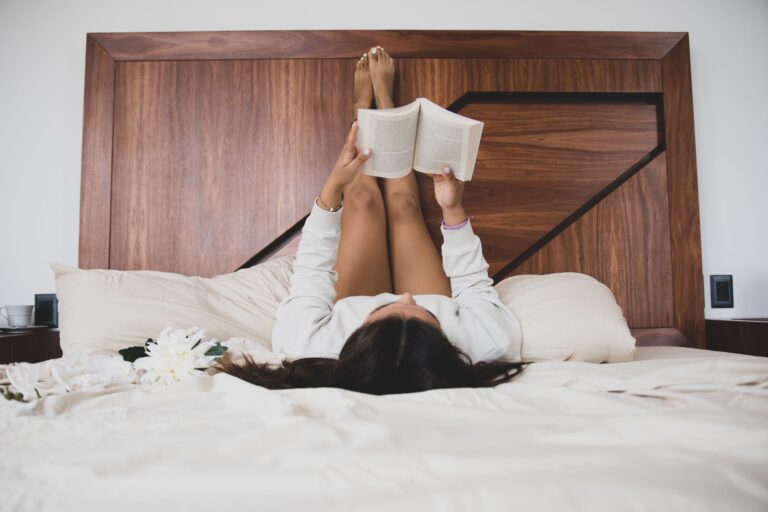How to easily become a morning person

This post may contain affiliate links, which means I’ll receive a little commission if you purchase through my link at no extra cost to you. Please read the full disclosure here
If you’re someone who gets up early and completes some tasks on your to-do list before 8 a.m., you are probably familiar with some of the benefits that starting the day refreshed may bring.
On the other hand, mornings could be the most difficult time of the day for you where you find yourself always hitting the snooze button on your alarm or constantly rushing to leave the house.
If you consider yourself a night owl, but your work or commitments require you to be up early you probably dread every moment you have to drag yourself sleepily out of bed and into the bathroom to get ready for the work day wondering to yourself what magical powers early birds possess.
Now, there are genetic components that determine whether a person is an early bird or a night owl but our habits, environment, and behavior over a long period of time play a greater influence in our Circadian rhythm.
According to Sleep Foundation, “Circadian rhythms are 24-hour cycles that are part of the body’s internal clock, running in the background to carry out essential functions and processes. One of the most important and well-known circadian rhythms is the sleep-wake cycle.”
The sleep and wake circle is how our bodies align our sleep and wakefulness with nighttime and daytime.
As a species, we have always needed light to work in the daytime and so our bodies keep us awake and alert in the daytime and sleepy when it gets dark. This way we could rest at night, stay away from danger and be ready to work again when it is daybreak.
But we have evolved and come a long way from the stone Age, and we have so many technologies that enable us to work just as well in the nighttime as we can in the daytime.
This means that our individual patterns of sleep have a greater influence on our sleep and wake circle. If you grew up in a home where everyone typically got up early to get on with their day, chances are you wouldn’t struggle to get up early as much.
If on the other hand, you’ve spent years staying up late that would influence you to be more active late into the night.
This also means that if you struggle to get up early, there are habit changes and actions you can take to influence your body clock to help you become an earlier riser.
It is possible to improve your morning experiences; you just need to make a few lifestyle adjustments, some of which are more subtle than you might have imagined.
In this post, I will split these tips into two steps.
- The first is night practices to help you adjust your natural sleep time so you can sleep earlier.
- The second is things to do in the mornings to improve your alertness and help you feel ready for the day.
Without further ado, let’s dive into how you can improve your sleep.
1. Adjust your bedtime gradually

With a lot of things in life, rapid and drastic changes tend not to last rather a slow progressive change helps us transition better with whatever change we are trying to make.
The same thing applies to your sleep schedule. Attempting to change your sleeping time in one day might be too drastic of a change for you and you might just revert back to your old sleep pattern.
You need to gradually change your sleeping time by going to bed 15 to 30 minutes earlier than you normally do each night. After adjusting to this change, you can repeat the step again until you’ve reached your target sleep time.
2. Consider melatonin supplements

Consider taking a melatonin supplement two hours before your scheduled bedtime if you’re having difficulties falling asleep.
The pineal gland produces a hormone called melatonin in the brain. This hormone helps to control our sleep and wake time.
Its levels are usually high at night when we are about to fall asleep and go down in the morning when we are expected to be alert.
If you go to bed late, based on your body clock, your melatonin levels would increase at a later time than people who regularly go to bed early.
Taking melatonin can help increase your melatonin levels earlier when you are trying to adjust your sleep time.
Supplemental melatonin is used as a natural sleep aid that is available over the counter and generally regarded as safe for occasional use (though you should consult with your doctor first).
3. Avoid heavy dinners
There is evidence that the last meal you eat before bed may have an impact on the quality of your sleep. According to studies; lighter, less restorative sleep is associated with low consumption of fiber, a high intake of saturated fat, and a high intake of sugar.
It’s important to remember that it is not just what you consume, timing is equally significant.
Nocturnal eating, such as late-night snacks and delayed dinners, is associated with unsatisfactory sleep. If you are guilty of having late-night dinners, consider adjusting your dinner time earlier and observe if there are any improvements to your sleep.
4. Try Aromatherapy

Aromatherapy can be a helpful tool for helping you become a morning person.
Essential oils such as lavender, chamomile, and vanilla are known for their calming properties and can help you wind down and fall asleep at night.
In the morning, you can use invigorating scents such as peppermint, rosemary, and lemon to help you feel awake and alert.
Consider using essential oil diffusers in your sleep environment to create a calming and rejuvenating atmosphere.
5. Have a warm bath
Some studies show that taking a warm bath or shower before bed can aid in falling asleep and improving the quality of your sleep, but not just because they are relaxing.
Our circadian rhythms cause the body’s core temperature to fluctuate throughout the day, gradually dropping in the evening. As our body temperature begins to fall, our bodies start getting ready for sleep, and we begin to feel sleepy.
So why not start that process off right with a refreshing shower? Research indicates that submerging the body in warm water (between 40 and 42.5 C) effectively cools the body by bringing blood to the surface, which causes the heat from our core to be dispelled gradually. It is advised to take a shower or a bath an hour or two before bed.
6. Improve your screen light exposure
The fact that evening screen time can interfere with your ability to get a decent night’s sleep shouldn’t come as a surprise. Our computers, and phone screens all generate blue-wavelength light, which is a stimulant that can reduce melatonin production and change our circadian rhythm.
You may reduce your evening exposure to blue light by taking a few simple steps:
- The first is to: restrict your screen time and put all electronics away two to three hours before bed.
- Another is to consider downloading a computer and Smartphone app to reduce blue light. These apps change the brightness of the light in your computer’s display in accordance with the time of day. Toward the end of the day, it gradually tints your screen to an amber tone.
- You can also try blue light blocking glasses; these lenses include filters that either absorb blue light or block it from passing through. Apart from the benefits associated with your sleep, blue light blocking glasses can be worn all through the day when you work on your screens to help reduce the strain on your eyes that comes from long hours of screen light exposure.
7. Control your coffee consumption

The caffeine in coffee is a stimulant that helps to stay awake and alert.
Taking coffee in the evening time or closer to your bedtime will hinder you from falling asleep faster.
It is recommended to cut off your coffee consumption about seven hours before your bedtime so that you can sleep better.
If you need a little pick-me-up in the evening time, consider other alternatives like herbal tea or fresh juice. I personally find that a class of fresh orange juice gives me a good boost to power through the rest of the evening when I still need to get things done before the end of the day.
8. Get an adequate amount of sleep
Getting a good night’s sleep is key to feeling well-rested and rejuvenated in the morning. You will feel more clear-headed and alert after a good night of sleep.
Make sure to get 7-9 hours of sleep each night to ensure that you are replenished and ready to tackle the day ahead.
Create a Comfortable Sleep Environment. Having a comfortable sleep environment is essential for getting a good night’s sleep. Make sure your bed is comfortable and supportive, and keep your room cool, dark, and quiet.
If you struggle with sleep, consider seeking help from a healthcare professional, who can help you identify and address any underlying sleep problems.
9. Avoid evening naps
Taking a nap much later in the day or taking really long naps can push your sleep time further into the night.
If you are taking naps consider taking shorter ones for about an hour earlier in the afternoon.
After tackling your ability to sleep better at night, here are things you should do when you wake up in the mornings to help you become a morning person:
1. Wake up significantly earlier that you have to leave the door
If you wake up with barely enough time to get ready and out of the door, consider giving yourself more time in the morning.
This would enable you to gradually wake up and be ready for your day with less stress.
Try waking up an hour before work so you can practice your morning routine and some self-care to wake your body up gradually and be more alert before you start the day.
2. Avoid distractions within the first hour of waking up
Avoid distractions in the first hour of waking up such as social media.
Social media is very enticing and you could waste so much time on there before you even realize it.
Also starting your day off with social media will make all the things you need to do seem a little more difficult than they are.
Start your day first without social media to build that momentum of productivity for the rest of the day.
3. Establish a routine
Creating a morning routine can make the transition to becoming a morning person much easier.
This routine should include activities that you enjoy and that get you in the right frame of mind for the day. For example, you could start your day with a cup of coffee, journaling, your favorite breakfast, or some skincare.
A morning routine provides structure and purpose to your day and can give you a sense of accomplishment before you even leave the house.
Having a routine that you look forward to will help you get out of bed in the morning and start your day with a positive attitude.
4. Journaling
Journaling in the morning has been proven to have a lot of benefits that can enhance our mental and emotional well-being.
Journaling can help with stress management and improving our mood, as writing about challenges and obstacles can provide a healthy outlet for our emotions and help us process our thoughts and feelings better.
There are different types of journals targeting different aspects of life you are focusing on. My favorite type of journal is a gratitude journal. Sitting down to write things you are grateful for will surprise you that you have more to be thankful for than you thought you did.
This would give you a more positive attitude to carry through the day.
One of my favorite journals is the The five minute journal that is super consized for people who don’t have much time to spend jounaling.
5. Exercise during the day

You might want to reconsider if you have been working out close to your bedtime. The basic rule is to cease exercising two hours before bedtime.
Even if you feel fatigued after your workout; it doesn’t imply you’re going to get a decent sleep. Try scheduling your exercise for earlier in the day.
You can also consider working out when you wake up in the morning to increase your alertness. It doesn’t have to be an intense workout at the Gym.
You can skip for 10 to 30 minutes, jug in place, run in place, or get yourself a spin bike to get your blood pumping for some minutes each morning.
Exercise releases norepinephrine and serotonin, neurotransmitters linked to alertness, which explains why so many early risers claim that a morning workout provides them with energy for the rest of the day. Exercise is also known to release endorphins, especially during vigorous, sweat-inducing aerobic sessions, which can increase your mood as you begin your day.
6. High-energy breakfast
Consider having a high-energy breakfast as part of your morning.
This will give your body the right fuel for the day. A healthy breakfast rich in fiber and fruits will gradually release glucose to energize your body.
A highly processed, high-sugar breakfast on the other hand can give you a short sugar spike and then a sugar crash afterward that can keep you feeling tired and irritable.
Ready to become a morning person?
There you have it! You have come to the end of this post on how to easily become a morning person.
Quite a handful of tips have been mentioned in this post, it can get a little overwhelming if you try to implement them all at the same time.
Like the first tip I mentioned, try implementing them gradually. A few tips at a time so you can create a change that lasts.
Until next time, I hope you have exciting mornings henceforth!
Other posts you may like:






